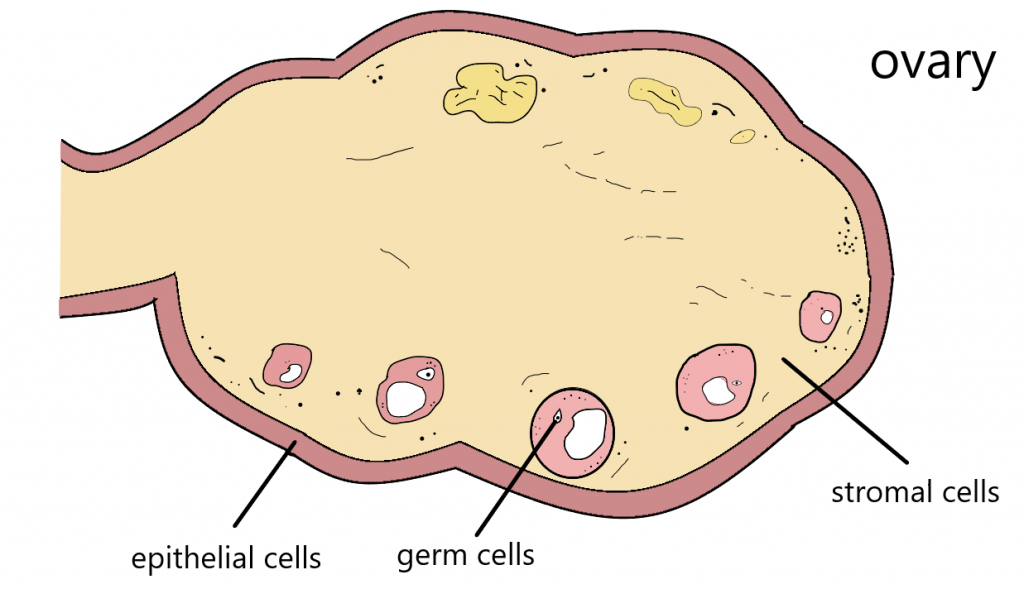
Ovarian cancer is a malignancy arising from the ovary (ovaries). The ovary consisted of 3 layers of cells, namely the outer layer of epithelial cells, the inner germs cells, which form the eggs, and the background stromal cells, which produce hormones. Cancer can develop from all 3 layers but most commonly from the epithelial cells.

Ovarian cancer is not a very common cancer in Hong Kong and worldwide. In Hong Kong, it is ranked no. 6 among all female cancers in 2018. The life time risk for a Hong Kong woman to develop ovarian cancer is 1 in 90. Those with close relatives having ovarian cancers (eg. mother, maternal aunt and sisters…) are at higher risks. Carriers of mutation of a tumour suppression gene, the ‘BRCA’ gene are at very high risks (~50% chance) of developing ovarian cancer before 50 years of age apart from having breast cancer.
Different from uterine and cervical cancers that present with bleeding at early stage of the diseases, most ovarian cancer patients do not have symptoms till late. The ovary is a small organ (2-3 cm) located deep inside the pelvis. When cancer has developed, even if the ovarian size has doubled, it is still quite small and the patient usually does not feel it. Only when it becomes very big or the malignancy has spread to the nearby organs will the patient have symptoms. Thus, a large portion of ovarian cancer patients are diagnosed at late stage, which renders complete cure difficult.
Yes and no! Ultrasound scans and serum tumour marker CA125 had been tried as screening tools for ovarian cancer. Unfortunately, these tests have high false positive rates and thus may create a lot of unnecessary anxiety and surgery. However, these tests are useful in high risk group, eg. patients with strong family history of ovarian cancer or BRCA gene carriers.
Pregnancy is regarded as a protective factor against ovarian cancer. High level of progesterone in pregnancy is believed to be the reason behind. On the other hand, usage of oral contraceptive pills is associated with 30-50% reduction in risks of ovarian cancer and the protection increases with the duration of its use. For carriers of BRCA gene mutation, removal of both ovaries after completion of family prevents cancer development.
Upfront surgery to remove tumour bulk is the mainstay of treatment for early and intermediate stage disease. Except very early stage disease, most patients would need post-operative chemotherapy. On the other hand, some patients in advance stage will benefit from chemotherapy first, followed by surgery.
The prognosis of ovarian cancer depends on various factors including the stage of disease at diagnosis, any residual disease after surgery and the response to chemotherapy. With the development of target therapy, patients with advanced disease can now have prolonged survival with good quality of life.